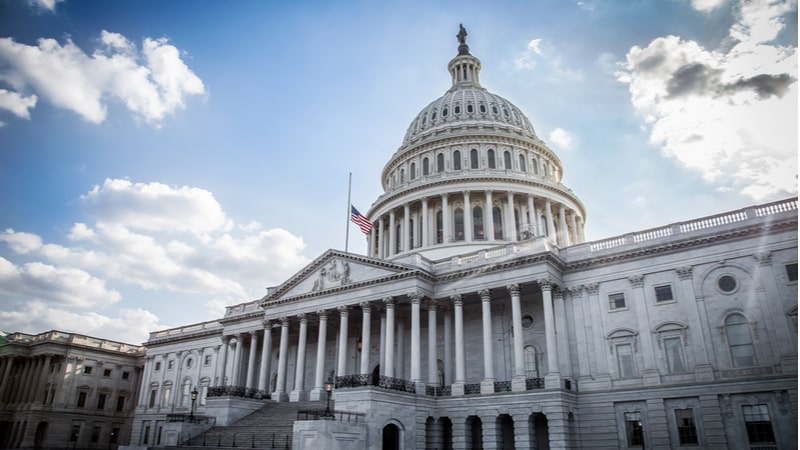
The Senate voted 60-40 on Monday to approve a funding package that would end the longest government shutdown in U.S. history, sending it to the House for a final vote.
Eight Democratic senators crossed the aisle to vote for the short-term continuing resolution (CR), which extends government funding through January 30, 2026.
The deal also includes three full-year appropriations bills that would fund the Department of Veterans Affairs and military construction, the Department of Agriculture and the Food and Drug Administration, and the legislative branch.
Additionally, the CR reverses the reductions in force (RIFs) that the Trump administration implemented during the government shutdown, and it prevents any future layoffs until the end of January. Notably, over 4,000 federal employees have been cut amid the shutdown.
The bill also ensures back pay for federal employees, both for furloughed employees and employees who have continued to work throughout the shutdown. This is a key inclusion in the CR, as the White House warned in October that furloughed federal employees may not be guaranteed back pay.
Absent from the bill is an extension of expiring healthcare subsidies – a key demand of Democrats during the shutdown. However, in exchange for the eight Democratic votes, Republicans have agreed to hold a vote on extending the Affordable Care Act subsidies by mid-December.
Members of the House of Representatives – which hasn’t been in session since mid-September – are returning to Washington and could vote on the bill as early as Wednesday. If the bill passes, it will then go to President Donald Trump’s desk for a final signature.
CISA 15 Extension Included in CR
A key technology provision included in the CR is an extension of the Cybersecurity Information Sharing Act of 2015 (CISA 15) through Jan. 30, 2026. CISA 15 expired at midnight on Sept. 30.
CISA 15 put in place a legal framework for government and the private sector to share cybersecurity threat data, and the law has been hailed since then as foundational to improving U.S. cybersecurity.
Without those protections, industry leaders have said that both industry and the federal government will be handicapped in their efforts to address cyber threats promptly before they become widespread.
Lawmakers have attempted to reestablish the legal protections for cyber threat information throughout the shutdown.
National Cyber Director Sean Cairncross has also voiced his support of CISA 15, calling it “a foundational law.”
“It provides necessary liability and antitrust protection for industry to share information. It’s important for national security. It’s vital for our threat assessment and response, and we want to see it done,” Cairncross said last month.
Cynthia Kaiser, senior vice president of Halcyon’s Ransomware Research Center and the former deputy director of the FBI’s Cyber Division, told MeriTalk that any step forward to restore the cyber protections for information sharing “should be seen as a positive.”
“However, as the lapse in those protections made clear, we need a long-term solution,” Kaiser said in an emailed statement. “It’s critical that protecting cybersecurity information sharing is considered a priority in Congress upon the government’s reopening in order to maintain a strong national security posture.”
